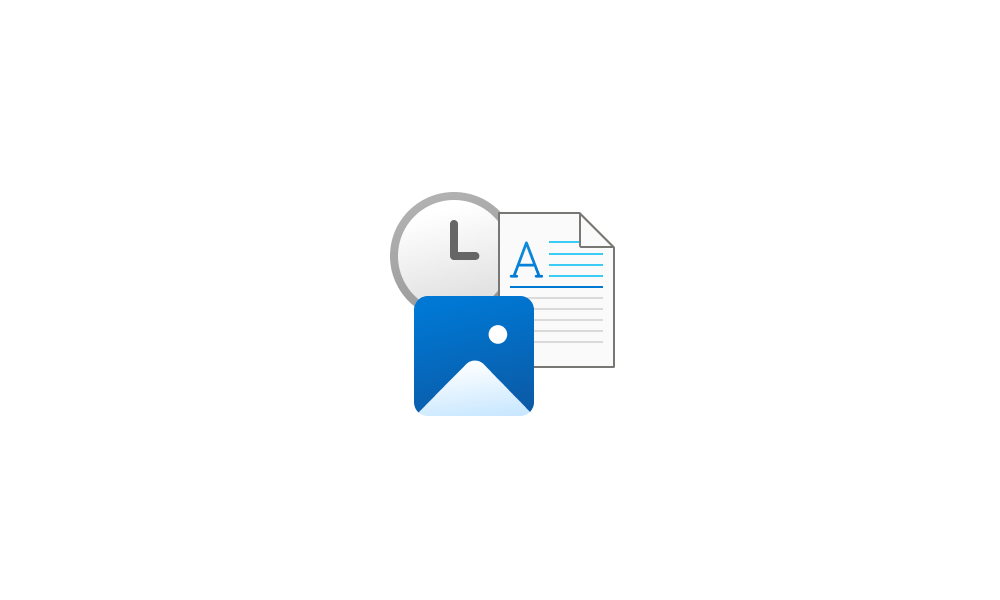This tutorial will show you how to enable or disable show recommended files in Start, recent files in File Explorer, and recent items in Jump Lists for your account or all users in Windows 11.
Your recently opened items will show in the Start menu Recommended section, Jump Lists, and File Explorer by default in Windows 11.
Recently opened items are stored in the %APPDATA%\Microsoft\Windows\Recent Items folder for the current user.
- Option One: Turn On or Off "Show recommended files in Start, recent files in File Explorer, and items in Jump Lists" for Current User in Settings
- Option Two: Turn On or Off "Show recommended files in Start, recent files in File Explorer, and items in Jump Lists" for Current User using REG file
- Option Three: Turn On or Off "Show recommended files in Start, recent files in File Explorer, and items in Jump Lists" for Current User in Registry Editor
- Option Four: Enable or Disable "Show recommended files in Start, recent files in File Explorer, and items in Jump Lists" for All Users in Local Group Policy Editor
- Option Five: Enable or Disable "Show recommended files in Start, recent files in File Explorer, and items in Jump Lists" for All Users using REG file
EXAMPLE: Recommended files in Start, recent files in File Explorer, and recent items in Jump Lists
Turn On or Off "Show recommended files in Start, recent files in File Explorer, and items in Jump Lists" for Current User in Settings
1 Open Settings (Win+I).
2 Click/tap on Personalization on the left side, and click/tap on Start on the right side. (see screenshot below)
3 Perform an available option below: (see screenshots below)
- (OLD) Turn On (default) or Off Show recently opened items in Start, Jump Lists, and File Explorer for what you want.
- (NEW) Turn On (default) or Off Show recommended files in Start, recent files in File Explorer, and items in Jump Lists for what you want.
Turning off this setting will clear your recent items list.
4 You can now close Settings if you like.
Turn On or Off "Show recommended files in Start, recent files in File Explorer, and items in Jump Lists" for Current User using REG file
This option will not work when Administrator protection is turned on.
1 Do step 2 (on) or step 3 (off) below for what you want.
This is the default setting.
A) Click/tap on the Download button below to download the file below, and go to step 4 below.
(Contents of REG file for reference)
Windows Registry Editor Version 5.00
[HKEY_CURRENT_USER\Software\Microsoft\Windows\CurrentVersion\Explorer\Advanced]
"Start_TrackDocs"=dword:00000001Turning off Show recommended files in Start, recent files in File Explorer, and recent items in Jump Lists will clear your recent items list.
A) Click/tap on the Download button below to download the file below, and go to step 4 below.
(Contents of REG file for reference)
Windows Registry Editor Version 5.00
[HKEY_CURRENT_USER\Software\Microsoft\Windows\CurrentVersion\Explorer\Advanced]
"Start_TrackDocs"=dword:000000004 Save the .reg file to your desktop.
5 Double click/tap on the downloaded .reg file to merge it.
6 When prompted, click/tap on Run, Yes (UAC), Yes, and OK to approve the merge.
7 You can now delete the downloaded .reg file if you like.
Turn On or Off "Show recommended files in Start, recent files in File Explorer, and items in Jump Lists" for Current User in Registry Editor
1 Open Registry Editor (regedit.exe).
2 Navigate to the key location below in the left pane of Registry Editor. (see screenshot below step 3)
Substitute <SID> in the key path above with the actual SID for the account you want to apply this to.
For example:
HKEY_USERS\S-1-5-21-2498639629-3946114050-4100787084-1001\Software\Microsoft\Windows\CurrentVersion\Explorer\Advanced
3 In the right pane of the Advanced key, double click/tap on the Start_TrackDocs DWORD to modify it. (see screenshot below)
4 Enter 0 (off) or 1 (on - default) for what you want, and click/tap on OK. (see screenshot below)
5 You can now close Registry Editor if you like.
Enable or Disable "Show recommended files in Start, recent files in File Explorer, and items in Jump Lists" for All Users in Local Group Policy Editor
You must be signed in as an administrator to use this option.
The Local Group Policy Editor is only available in the Windows 11 Pro, Enterprise, and Education editions.
All editions can use Option Five.
1 Open the Local Group Policy Editor (gpedit.msc).
2 Navigate to the key below in the left pane of the Local Group Policy Editor. (see screenshot below)
3 In the right pane of Start Menu and Taskbar in the Local Group Policy Editor, double click/tap on the Do not keep history of recently opened documents policy to edit it. (see screenshot above)
4 Do step 5 (enable) or step 6 (disable) below for what you would like to do.
This is the default setting to allow users to use Option One, Option Two, and Option Three.
This will disable and prevent users from using Option One, Option Two, and Option Three.
7 You can now close the Local Group Policy Editor if you like.
Enable or Disable "Show recommended files in Start, recent files in File Explorer, and items in Jump Lists" for All Users using REG file
You must be signed in as an administrator to use this option.
1 Do step 2 (enable) or step 3 (disable) below for what you would like to do.
This is the default setting to allow users to use Option One, Option Two, and Option Three.
(Contents of REG file for reference)
Windows Registry Editor Version 5.00
[HKEY_CURRENT_USER\Software\Microsoft\Windows\CurrentVersion\Policies\Explorer]
"NoRecentDocsHistory"=-
[HKEY_LOCAL_MACHINE\SOFTWARE\Microsoft\Windows\CurrentVersion\Policies\Explorer]
"NoRecentDocsHistory"=-This will disable and prevent users from using Option One, Option Two, and Option Three.
(Contents of REG file for reference)
Windows Registry Editor Version 5.00
[HKEY_LOCAL_MACHINE\SOFTWARE\Microsoft\Windows\CurrentVersion\Policies\Explorer]
"NoRecentDocsHistory"=dword:000000014 Save the .reg file to your desktop.
5 Double click/tap on the downloaded .reg file to merge it.
6 When prompted, click/tap on Run, Yes (UAC), Yes, and OK to approve the merge.
7 You could now delete the downloaded .reg file if you like.
That's it,
Shawn Brink
- View Recently Opened Files in Windows 11
- Clear File Explorer History in Windows 11
- Add or Remove Recent Files in File Explorer Home in Windows 11
- Hide or Show Most Used apps list on Start Menu in Windows 11
- Add or Remove Recently Added apps on Start Menu in Windows 11
- Add or Remove Recommended Websites on Start Menu in Windows 11
- Enable or Disable Recommended Tips, Shortcuts, New Apps, and more on Start Menu in Windows 11
- Add or Remove Home in Navigation Pane of File Explorer in Windows 11
- Turn On or Off Show All Pins on Start Menu in Windows 11
- Change Maximum Number of Items in Jump Lists in Windows 11
- Enable or Disable Recent Search History in Windows 11
- Enable or Disable Store Activity History on Device in Windows 11
- Pin Recent Folders to Quick Access in Windows 11
- Pin Recent Items to Quick Access in Windows 11
Attachments
-
Disable_Show_recently_opened_items_in_Start_Jump-Lists_File_Explorer_for_all_users.reg710 bytes · Views: 842
-
Enable_Show_recently_opened_items_in_Start_Jump-Lists_File_Explorer_for_all_users.reg900 bytes · Views: 767
-
Turn_Off_Show_recently_opened_items_in_Start_Jump-Lists_File_Explorer.reg712 bytes · Views: 1,532
-
Turn_On_Show_recently_opened_items_in_Start_Jump-Lists_File_Explorer.reg712 bytes · Views: 1,410




















